In a few hours we will all be focusing on the semi-finalists, and they will get many more posts this week. But first let me reflect not only on the fact I finally managed to get some sleep, but also about what happened before that: the second rehearsals of the automatic finalists, where some of them reminded me of the oh so common statement: “They don’t want to win.”
How many times have we heard this over the years? How many times have we used it ourselves? Quite a lot, I bet.
I’m sure that occasionally it’s an accurate statement, and that there are people working for certain broadcasters who have woken up in a cold sweat after having nightmares in which dollar signs chased them and demanded they host Eurovision.
Which is also why I’m always willing to give a pass to hosting countries when they don’t really try very hard the next year – who can blame anyone who doesn’t to repeat this financial adventure so soon? I’d appreciate not getting tortured by the host country, and it’s possible to send a song and performance the people of the host country will be proud of even if it won’t do much damage on the scoreboard – as shown by this year’s Dutch entry.
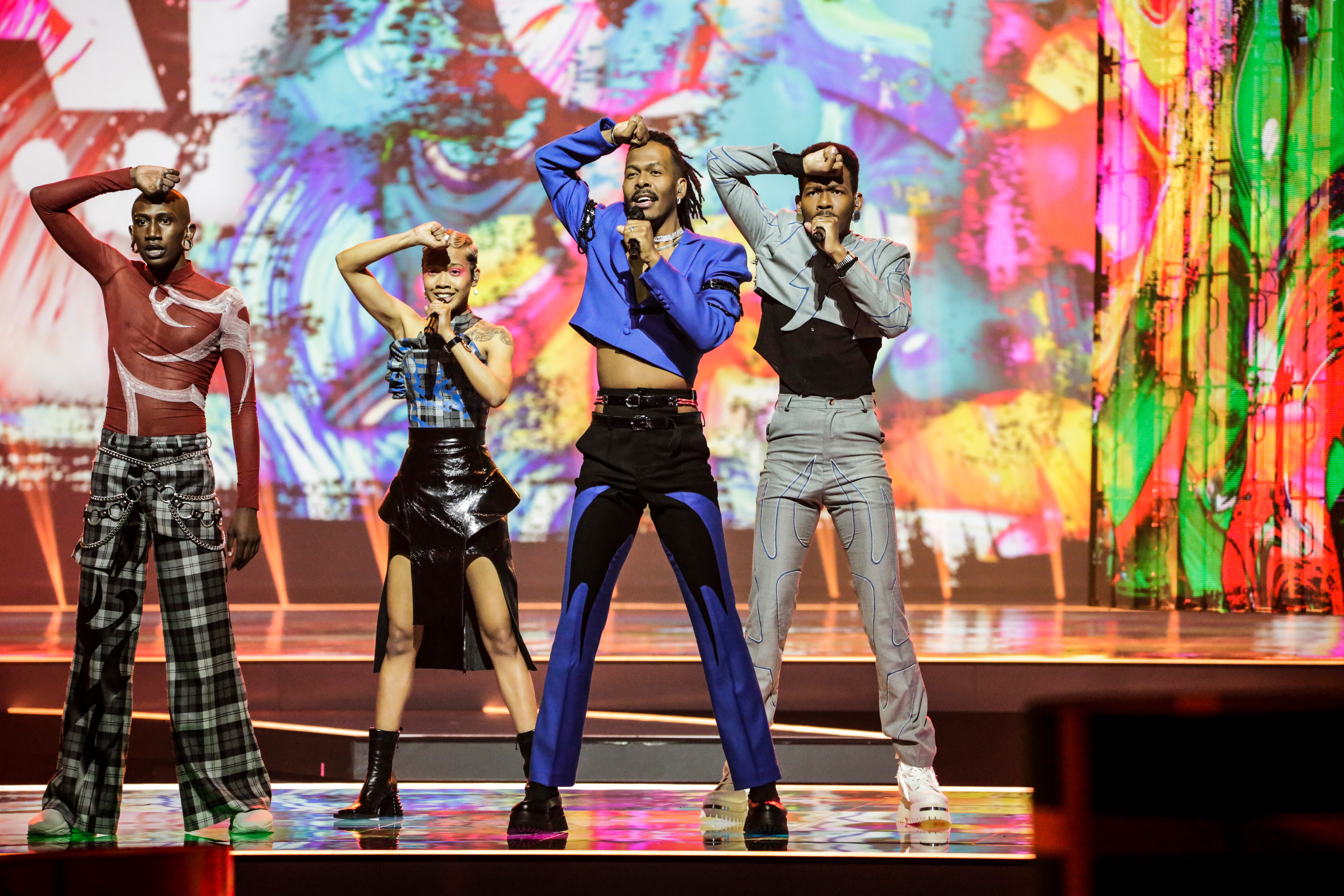
Be my guest (EBU / Thomas Hanses)
For the most part, this statement needs a bit of a semantic distinction. There are two ways to read this it: “they are actively trying to not win” and “they are not actively trying to win.” Whenever I read that kind of statement, I get the feeling people mean the former, but I think the latter is what happens in reality.
Why does this distinction matter?
It’s impossible to make progress without setting goals first. If you want to improve your grades, you need to work harder, figure out what your mistakes were and how you can do better next time. If you don’t really care about your grades, you probably will not invest as much effort. If you want to improve your 5K or marathon personal best, you need to train, you need to set milestones, you need to do a whole lot of things to make it happen. Do you see where I’m going with this?
Which is why this has always been the Achilles heel of the “automatic finalists” concept.
The semi-finalists have a clear benchmark to reach. It’s not an easy one – as countries who fail qualifying repeatedly know – but it’s also far from impossible when more than 50% of them make it to the final. When you set this as your initial goal, you keep trying and learning until you figure it out. That’s been the case for the last two winners, the Netherlands and Israel, who got tired of not qualifying and made significant changes to their selection system. Once they finally achieved this goal (both, incidentally placing 9th in their first year back in the final), the benchmark moved up. Fast-forward a few years, and both are the most recent Eurovision winners and hosts.
France experienced something similar, albeit less intentionally so. When a new Head of Delegation took over after the country finished in the bottom 5 between 2012 and 2015, he brought in a better approach – but he also had quite a bit of luck finding Amir’s song. France are yet to repeat that placement, but it does feel like the good result got the ball rolling and it does feel like they are actually trying. Staging their entries has been a repeating difficulty for them, so seeing them bringing one of their best presentations this year tells me that behind the scenes there are people who really want to see France succeed.

Take me as I am (EBU / Anders Putting)
And yet: Germany managed to finish fourth not too long ago, and that still didn’t help get it back on the right track, because when that placement is a fluke that happened as you were wandering aimlessly around, it’s hard to repeat it. After all, how can you if you have no idea what you did right? When you aim at nothing, it’s no wonder you can’t figure out what you want or need, and how to do it better. How they managed, even within their confused process, to reach the point in which they manage to choose what they sent this year internally, I don’t know – but if this is not a sign that the system is broken (as lovely as Jendrik is) I don’t know what is.

Let’s get happy (EBU / Anders Putting)
Spain is in a similar position with even less success. They tried different methods, invented even crazier methods, but nothing worked, of course, because it doesn’t matter what format you use if you have no idea what kind of song you want to send. The song is the root of it all, and without it, there’s not much you can do – except at least stage the hell out of it, which is something they don’t know how to do either. They almost had it right in 2019 when attempting a somewhat more reasonable approach of hiring someone who has done the job before and has had success, but when you don’t know what you want and don’t understand what you need, it’s very easy to go out shopping and come back home with the wrong items. They went with a more suitable creative director for their purposes this year, but still ignored the little issue of choosing a song well. Hint, Spain: picking a song that is a very typical run-of-the-mill song? That ain’t it. I can already see the RTVE bosses scratch their heads in confusion: “We don’t understand what went wrong! You told us the 2019 staging was ugly, so we sent pretty lights and stars. And we bought this giant moon! Do you know how much money it cost on AliExpress?”
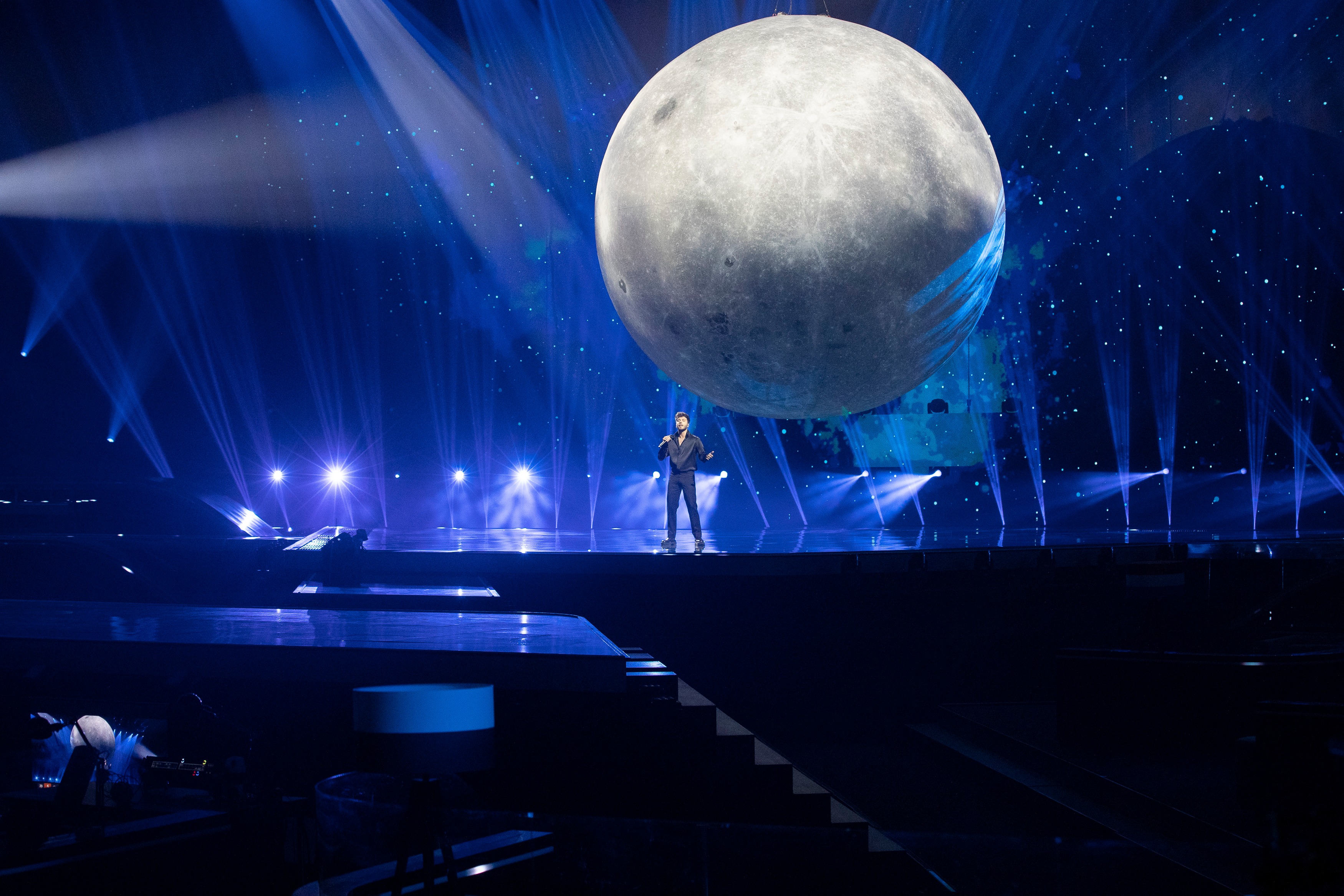
I don’t know if it’s wrong or it’s right but I know I want you to stay
(EBU / Anders Putting)
Don’t worry, Spain! There’s still one usual suspect who is way worse than you. Meet you the United Kingdom, who actually do (unintentionally) set some expectations: “We would really like to not be in the bottom 5 for once, but if we are, it’s because Europe hates us! We did nothing wrong!”
When you set such a low bar for yourself and also get your excuse sorted in advance, your expectations will always be met no matter what. If you have nothing that motivates you to do better, invest more, try harder… well, then you don’t. It’s a very basic human thing to do. On par with doing the same thing and expecting different results, really. Granted, that did work for Portugal, but I think it means this wildcard has been used up for another century or so.

Should’ve known better (EBU / Thomas Hanses)
There’s one exception to the automatic finalist rule, and that is Italy, whose fairly consistent selection method puts it in a very different place to the rest. When you choose your entry through a platform like the Sanremo festival, you pick something that has already been as widely tested as possible, a result of the country’s size and the festival’s popularity.
Italy is also the country about which the phrase “they don’t want to win” is used the most. But the more I think about it, the more I realize that in many ways it’s never been about this for them – at least not since coming back in 2011 – but more about representing themselves, their culture and traditions. When I watched the Italian press conference on Saturday, both the Head of Delegation and the assistant HoD made a point of working for the international relations department, and the annual Italian entry for Eurovision is Rai’s international representation of their own flagship, the Sanremo festival. The festival means they don’t have to figure out a musical approach for Eurovision, and they don’t pick a song within a framework that is aiming to win Eurovision, so they also don’t expect it. They just want to present themselves as best as they can.

For real, I’m for real (EBU / Anders Putting)
At the same time, to do that, they do need to learn how to do Eurovision. And they’ve been doing that. Just look at where the Italian staging was a decade ago and where it is now. Whether they win or not – much like their own approach – is irrelevant. They will show the rest of Europe their best selves.
I can only hope that when the other members of the big five get back to the drawing board next year, they take some time to look at Italy, and the progress from a country that had to be begged to return for many years, a country where no one even knew what Eurovision was, to one that manages strong showings almost every year. Be like Italy.

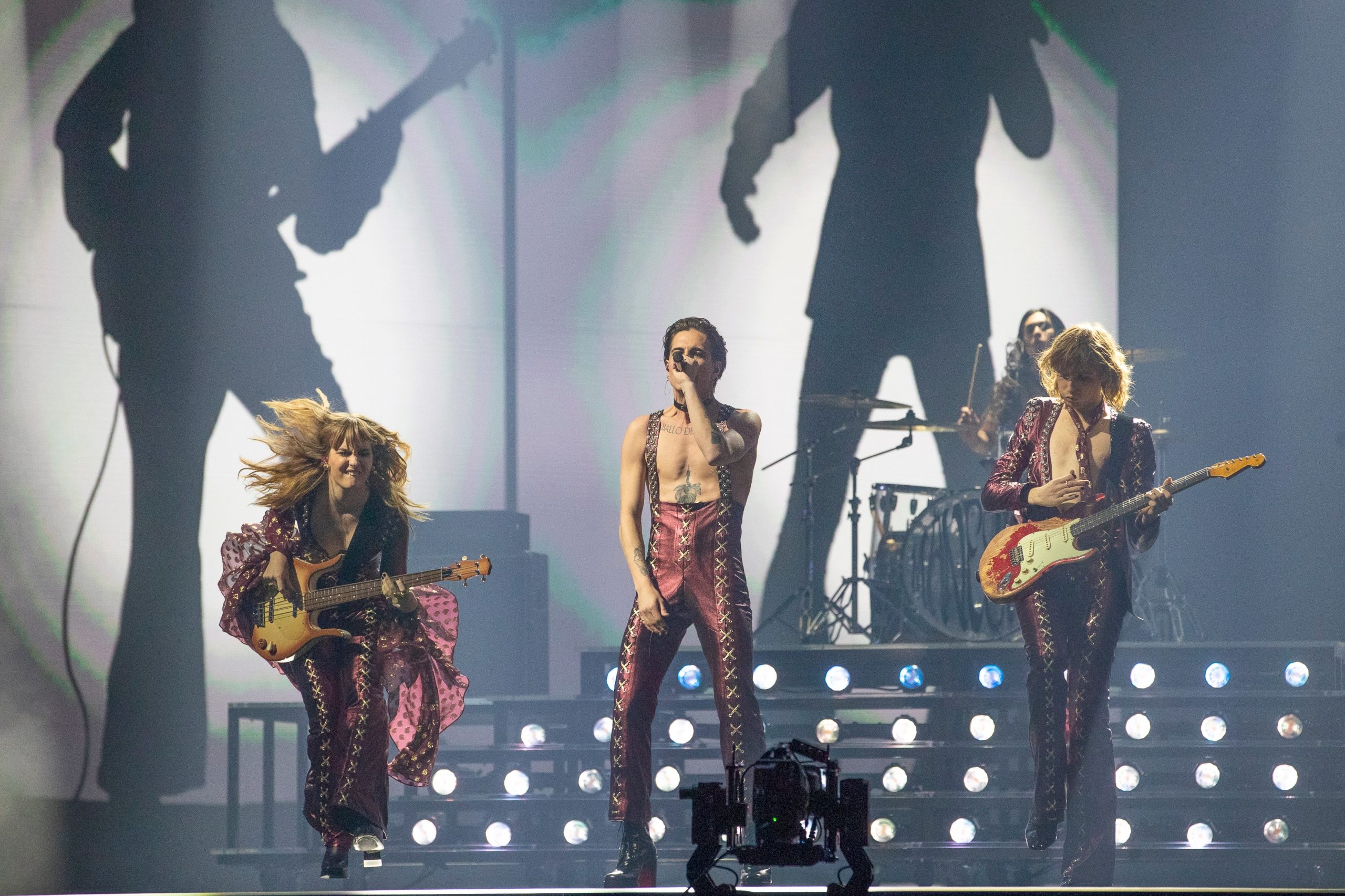

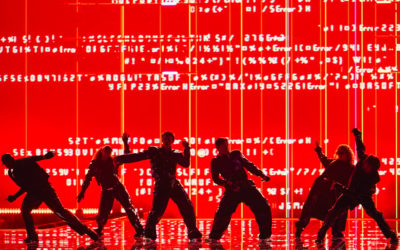

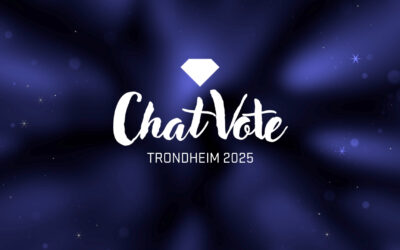



0 Comments